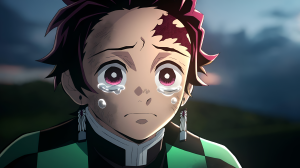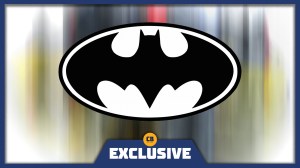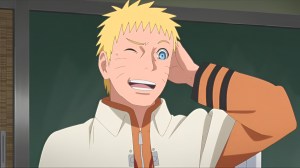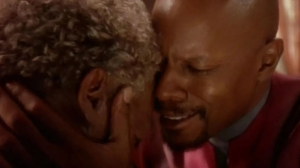To celebrate Earth’s Mightiest Week and the release of Avengers: Endgame, ComicBook.com has gotten in touch with several comics creators and professionals who are either currently working on a series featuring some of the characters of Avengers: Endgame or have made a major impact on the characters in some way.
Videos by ComicBook.com
Today, we’re featuring interviews with Mark Waid and Al Ewing. Waid is a prolific comics creator who wrote an all-new, all-different roster of Avengers in 2017 featuring a mix of classic characters like Iron Man and the Vision along with legacy heroes like Miles Morales and Kamala Khan. Ewing has written several versions of the Avengers, including Mighty Avengers, U.S. Avengers, and New Avengers, as well as solo series for both Rocket Raccoon and a critically acclaimed run on the Immortal Hulk. Along with Jim Zub, the pair are also the co-writers of Avengers: No Surrender and Avengers: No Road Home, a pair of Avengers events that capture a “classic” Avengers feel while showcasing a mix of old and new characters.
The interviews below, which were conducted by email, have been lightly edited for clarity only.

Welcome to Earth’s Mightiest Week! From April 22nd to April 26th, ComicBook.com is celebrating the culmination of the Marvel Cinematic Universe so far with a series of exclusive articles, lists, arguments, and more. If you’d like to check out some of our other offerings from this week, you can click the image above.
Mark Waid

I love that the roster is ever-changing and that, as always, it serves as a launching pad for newer characters — all the way from Vision to Voyager — who can slowly gain popularity without the burden of having to carry a series. And, honestly, I don’t know that the team’s purpose has morphed particularly — they’ve always served as Earth’s mightiest champions.
How have the Marvel movies impacted the Avengers comics line? Are you surprised at all by which characters seem to have come to the forefront thanks to the movies?One of the best things about writing for Marvel is that the movie division knows that the tail shouldn’t wag the dog. They maintain that they’re inspired by the comics. No High Sheriff ever comes down the hall to proclaim that the comics change to match the movies or the TV shows. If that happens, and it does, it’s because we in comics know a good idea when we steal it.
I am surprised most of all, pleasantly so, by the way the Black Panther has spun off to a vast audience previously not well served (and thus not terribly interested) in Marvel.
Waid (cont.):

It’s impossible to predict who’ll rise and fall in popularity. Not once but twice in this industry has Green Arrow been DC’s top-selling character, and if someone had predicted that in 1964, they’d have been laughed out of the room. That said, Ms. Marvel and Miles Morales, to name two, clearly have staying power — again, like Panther, because a whole new audience can see themselves in those characters. That’s a huge part of what makes those characters popular, and that’s what makes them (and others) vitally important to Marvel.
One character that you’ve returned to multiple times is Captain America. Do you feel that the values that Captain America stands for has shifted as America has changed over the last 20 years? Did you approach writing Captain America differently when you wrote his series last year than when you did back in the 1990s?I don’t think his values have changed since the first day he put on that costume. To my mind, Cap’s bible is the Bill of Rights, interpreted with compassion and sensitive to how times grow and change. But, yes, I do approach him differently than when I first wrote him in that he’s an inherently political character, and with our country more divided now that it’s been in my lifetime, I’m mindful of not using Cap to actively preach for any one side.
What do you want to see out of the Avengers franchise in the next 20 years?In comics? Just more rip-roaring stories. In media? Turning a liability into an asset. In comics, we can keep our characters young and vital forever. Not so with actors. I look forward to what can come of older heroes, having done their noble service, passing their batons on to newer ones.
Al Ewing

What was your favorite Avengers moment to write? Do you have a favorite Avengers character that you enjoy writing?
I guess my absolutely favorite moment from No Surrender, which is the biggest Avengers story I ever had a hand in, was the final battle with the Grandmaster — which took the form of a poker game against the least well-known Avenger, Lightning. Lightning out-bluffed the Grandmaster by putting his memory — as in, the memory of him in other people’s minds — on the line. If he lost, nobody would ever remember him. And his bluff was that only the Grandmaster thought that had value — as far as Lightning was concerned, he’d bet nothing, because any true Avenger knows that it’s what you do, the good you achieve, that matters, not the glory. And Grandmaster, even though he almost certainly had the winning hand, had to fold — he couldn’t risk his reputation.
And that kind of turned what people think the Avengers are — this exclusive club for the best and most popular heroes doing big epic things — on its head, because Lightning, the forgotten hero, got to save the day alone, through a great moral victory rather than a big display of power. And that’s the Avengers, too. So I enjoyed being able to do that. (My second favorite moment is Lightning mucking the hand. Grandmaster begs to know what he had, how he won the game — Lightning’s response is that he wasn’t playing.)
I guess given that, my favorite Avenger should be Lightning — or maybe Hercules — but weirdly, my very favorite, who I wish I got to do more with, is… Wonder Man! And entirely because of recent developments — in the last decade, he’s become a pacifist. He refuses to use his powers violently, under any circumstances. He’s still effective — he can shield people, do disaster relief, and probably my third favorite moment of No Surrender was him doing rope-a-dope against the Hulk, taking his strongest punches without hitting back — but nobody seems to know what to do with him now, because we can’t imagine a superhero who doesn’t hit people. That’s fascinating to me, and I guess that’s what makes him my favorite, that wonderful moral stand he takes. One day he probably is going to hit someone, and it’ll be presented as this big heroic moment, but personally when that day comes, I’ll shed a quiet tear, because after that he’ll never be quite as interesting again.
Over the last five or so years, you’ve revisited the Avengers franchise multiple times, often on team books. How do you approach writing the Avengers, and how do you pick the rosters when you work on a new Avengers series?
I guess my mantra when writing the Avengers is the “there came a day” speech — “there came a day when Earth’s Mightiest Heroes banded together to fight a foe no single her could withstand.” That and their battle cry being “assemble” — it writes itself. It’s a team built around the virtues of community and collective action. The Avengers are the slap in the face to the “there is no society”, “I got mine” ethos — they’re not an exclusive club of the biggest and toughest and most popular, they’re an organization grouping together to fight the threats to the ordinary citizen that they are best equipped to fight. When I was writing Mighty Avengers, the big idea — which I skirted around but never really managed to dive into, and I regret that — was that EVERYONE, literally everyone who asked, was an Avenger now. Everyone could send off for the Avengers card and be given a job to do, whether that was beating up Thanos or helping at a food bank. And I guess that’s the ethos I bring to it.
So I guess when I pick teams, I tend to go for the lesser-known heroes — I’m often told I need some A-listers on the team or nobody’s going to read the book — and one thing I always try to do, even if I don’t always succeed, is make sure there’s plenty of representation there. I’d like to do my small bit to elevate some of these lesser-known heroes, the ones who don’t have movies or TV shows, up to the prominence of their peers, or failing that, at least keep them in the reader’s eye.
Ewing (cont.)

Of the Avengers that you’ve written, are there any that you believe could reach the level of mainstream popularity that Captain Marvel or Black Panther has?
Honestly, I think if another writer picked Blue Marvel up and built on what’s there, he could be massive — maybe he could go back to his original creator, Kevin Grevioux, or maybe someone new could push him further. I’m happy with most of what I did with him — he could have had a few more big epic feats, but I like that I got to fill in his “hidden years” with some action-packed Doc Savage/Indiana Jones-style super-science. I guess it’s another example of me loving the lesser-known heroes — Blue Marvel’s got this kind of unique space in the Marvel world, not quite the Superman figure but not quite not, and his complex relationship with power and his own responsibility makes him fascinating to me.
Why did you decide to lean into the body horror themes and other horror elements in the Immortal Hulk? It’s a fresh departure from the “misunderstood monster” we’ve seen the Hulk portrayed as most of the time.
Honestly, it grew very organically out of him being dead. I remember way back when we were first discussing Avengers: No Surrender, there was talk about bringing the Hulk back for that, and I was very keen on making that a horror beat — I thought it’d be interesting if there wasn’t a “why” of Hulk returning to life, if that was just something he did, and that’d open up a lot of possibilities for some really creepy horror beats. So I was pushing for that for months, and we got that tone into No Surrender, and I think that’s the reason I was asked to pitch for the main book. And when I came to do that, I really took a look at the very first Hulk issues, that aborted six-issue run way back in the ’60s, and you can see the germ of everything there — the horror approach, the unsettled and unsettling nature of it, the idea that you could never be entirely sure what you were picking up — these are things Stan, Jack, and Steve did back then, and we’re doing our own take on now.








